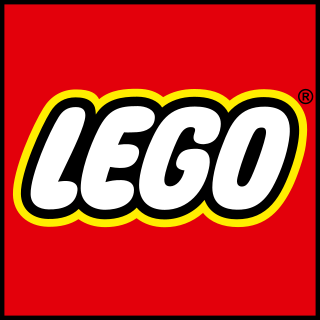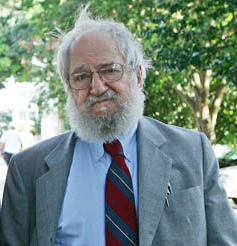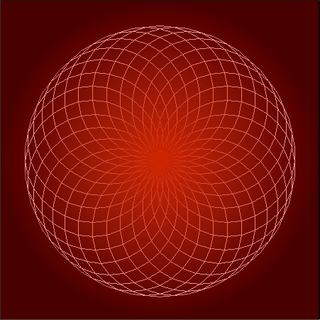
Seymour Aubrey Papert was a South African-born American mathematician, computer scientist, and educator, who spent most of his career teaching and researching at MIT. He was one of the pioneers of artificial intelligence, and of the constructionist movement in education. He was co-inventor, with Wally Feurzeig and Cynthia Solomon, of the Logo programming language.

Lego Mindstorms is a hardware software platform produced by Lego for the development of programmable robots based on Lego building blocks. Each version of the system includes an intelligent brick computer that controls the system, a set of modular sensors and motors, and Lego parts from the Technic line to create the mechanical systems.
MLCAD is a virtual modeling program designed for use with LEGO parts. Using the LDraw LEGO parts library, it provides the ability to build virtual LEGO models.

Lego Duplo is a product range of the construction toy Lego by The LEGO Group, designed for children from 1½ to 5 years old. Duplo bricks are twice the length, height, and width of traditional Lego bricks, making them easier to handle and less likely to be swallowed by younger children. Despite their size, they are still compatible with traditional Lego bricks.

This article lists notable events and releases in the history of the Lego Group.
The History of Lego began in 1932 in a Danish carpentry workshop and continues into the 21st century as a popular and very profitable line of construction toys and related products and services, including Lego board games, retail stores, Lego video games, Lego films, Legoland theme parks, and Lego Serious Play consultant services, with a significant impact on various areas of popular culture. Despite its expansion, the company remains privately held.
Traveller's Tales is a British video game developer and a subsidiary of TT Games. Traveller's Tales was founded in 1989 by Jon Burton and Andy Ingram. Initially a small company focused on its own content, it grew in profile through developing games with larger companies such as Sega and Disney Interactive Studios. In 2004, development on Lego Star Wars: The Video Game started with Giant Interactive Entertainment, the exclusive rights holder to Lego video games. Traveller's Tales bought the company in 2005, and the two merged to create TT Games, with Traveller's Tales becoming the new company's development arm.

Lego System A/S, doing business as The Lego Group, is a Danish toy production company based in Billund. It is best known for the manufacture of Lego-brand toys, consisting mostly of interlocking plastic bricks. The Lego Group has also built several amusement parks around the world, each known as Legoland, and operates numerous retail stores.

Constructionist learning is when learners construct mental models to understand the world around them. Constructionism advocates student-centered, discovery learning where students use information they already know to acquire more knowledge. Students learn through participation in project-based learning where they make connections between different ideas and areas of knowledge facilitated by the teacher through coaching rather than using lectures or step-by-step guidance. Further, constructionism holds that learning can happen most effectively when people are active in making tangible objects in the real world. In this sense, constructionism is connected with experiential learning and builds on Jean Piaget's epistemological theory of constructivism.

Mitchel Resnick is LEGO Papert Professor of Learning Research, Director of the Okawa Center, and Director of the Lifelong Kindergarten group at the MIT Media Lab. Resnick currently serves as the head of the Media Arts and Sciences academic program, the academic program that grants master's degrees and Ph.Ds at the MIT Media Lab. Resnick's research group has developed a variety of educational tools that engage people in new types of design activities and learning experiences, including the "programmable bricks" that were the basis for the award-winning LEGO Mindstorms and StarLogo software. He co-founded the Computer Clubhouse, an award-winning network of learning centers for youth from under-served communities. Resnick is also a co-founder and a co-principal investigator of the Center for Civic Media. at MIT.
Stoopid Buddy Stoodios, formerly known as Stoopid Monkey, is an American production company and animation studio, formed by Seth Green, Matthew Senreich, John Harvatine IV, and Eric Towner. It was established in 2011 following the partnership of Stoopid Monkey and Buddy Systems Studios. It is one of the producers of the Adult Swim animated television series Robot Chicken and Hot Streets as well as SuperMansion on the Sony streaming service Sony Crackle and Buddy Thunderstruck on Netflix.

Turtles are a class of educational robots designed originally in the late 1940s and used in computer science and mechanical engineering training. These devices are traditionally built low to the ground with a roughly hemispheric shell and a power train capable of a very small turning radius. The robots are often equipped with sensor devices which aid in avoiding obstacles and, if the robot is sufficiently sophisticated, allow it some perception of its environment. Turtle robots are commercially available and are common projects for robotics hobbyists.

LEGO Digital Designer (LDD) is a freeware computer program produced by the Lego Group as a part of LEGO Design byME. It is available for macOS and Windows. The program allows users to build models using virtual Lego bricks, in a computer-aided design like manner. Until January 16, 2012, these could be uploaded, along with instructions and a box design, to the Lego Design byME website, from where the models could be ordered for delivery as a real, packaged set. Users can also take screenshots of their models and store the models on their computer in an .LXF file.

App Inventor for Android is an open-source web application originally provided by Google, and now maintained by the Massachusetts Institute of Technology (MIT).
The acknowledgement of Lego in popular culture is demonstrated by the toy's wide representation in publication, television and film, and its common usage in artistic and cultural works.
Lego Super Heroes is a theme and product range of the Lego construction toy, introduced in 2011. The line features both DC Comics and Marvel Comics characters. The DC Comics part of the line was launched first, being released in late 2011. The Marvel Comics part of the line was launched on April 10, 2012, to be featured alongside the 2012 film The Avengers.

The Lego Movie is a 2014 3D computer-animated adventure comedy film written and directed by Phil Lord and Christopher Miller from a story by Lord, Miller, and Dan and Kevin Hageman. Based on the Lego line of construction toys, its story focuses on an ordinary Lego minifigure who finds himself helping a resistance stop a tyrannical businessman from gluing everything in the Lego world into his vision of perfection. Chris Pratt, Will Ferrell, Elizabeth Banks, Will Arnett, Nick Offerman, Alison Brie, Charlie Day, Liam Neeson, and Morgan Freeman provide their voices for the film's main characters. The film was dedicated to Kathleen Fleming, the former director of entertainment development of the Lego company, following her death in Cancún, Mexico in April 2013.

The Lego Movie is an American media franchise based on Lego construction toys. It began with the 2014 film of the same name, which was directed and written by Phil Lord and Christopher Miller. The success of the film led it to receiving two licensed video games, a theme park film ride attraction, two spin-off films which were released in 2017, an animated series as well as a sequel among other pieces of media. A sequel to The Lego Batman Movie is in development, as well as a third spin-off.












